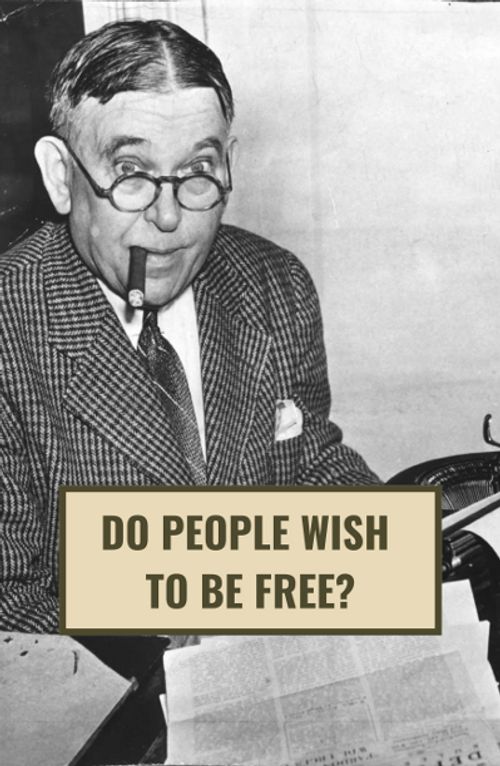Why people don't actually want liberty
Sep 25, 2022 · 2 mins read
0
Share

Introduction. H.L. Mencken was an influential 20th century American critic. It's a common presumption today that everyone wants to be free - but H.L. Mencken disagreed and laid out a convincing case why. In this Memo, let's ask whether humans really crave liberty👇
Save
Share
The typical human doesn’t want liberty: “The fact is that the average man’s love of liberty is nine-tenths imaginary, exactly like his love of sense, justice and truth. He is not actually happy when free; he is uncomfortable, a bit alarmed, and intolerably lonely.”
Save
Share
Only a small minority is built for liberty: “Liberty is not a thing for the great masses of men. It is the exclusive possession of a small and disreputable minority, like knowledge, courage and honor. It takes a special sort of man to understand and enjoy liberty.”
Save
Share
Schopenhauer believed in the “will-to-life” while Nietzsche believed in the “will-to-power.” But Mencken only sees a “will-to-peace” He writes: “The average man doesn’t want to be free. He simply wants to be safe. The average man wants the peace of a hog in a comfortable sty.”
Save
Share
The best way to control people is to keep them scared witless. Mencken writes: "The whole aim of practical politics is to keep the populace alarmed (and hence clamorous to be led to safety) by menacing it with an endless series of hobgoblins, all of them imaginary."
Save
Share
On modern life: “The basic fact about human existence is not that it is a tragedy, but that it is a bore. It is not so much a war as an endless standing in line. The objection to it is not that it is predominantly painful, but that it is lacking in sense.”
Save
Share
From Mencken's critique of the average person's preference for comfort to his characterization of modernity as fundamentally boring, it's clear that Nietzsche's shadow looms large over him. Mencken: “Nietzsche went out into the swamp much further than any other explorer."
Save
Share
Mencken asks: how did Nietzsche not lose his audience despite pushing the boundaries so hard? Because he always put up a “superb show.” Mencken: “He converted the problem of evil into a melodrama with nine villains; he made of epistemology a sort of intellectual bed-room farce."
Save
Share
Mencken lambasts the typical cynic: “Earnestly pursuing the true, he too often unearths the merely obvious, which is something not true at all. It is enormously serious and painstaking, but seldom very interesting, and never delightful.” But Nietzsche’s cynicism is "charming."
Save
Share
For Mencken, liberty means a constant battle with fate : “Man is never honestly the fatalist, nor even the stoic. He fights his fate, often desperately. He is forever entering bold exceptions to the rulings of the bench of gods. This fighting, no doubt, makes for human progress."
Save
Share
0